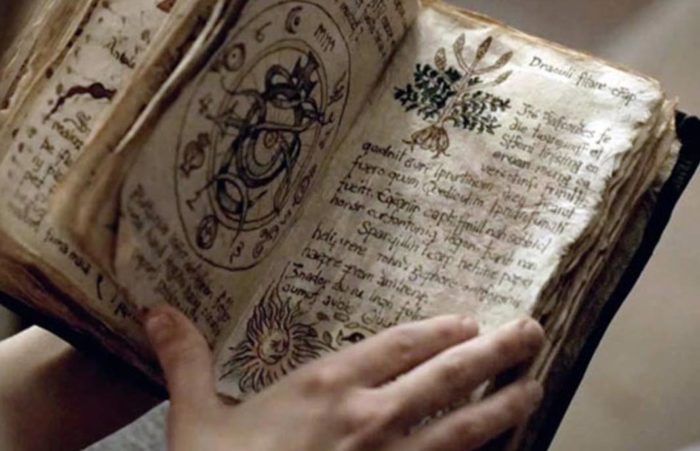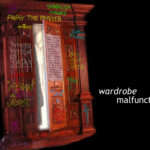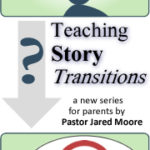Children Don’t Need Magic: A Response to Joshua Gibbs
I read Joshua Gibbs’ clickbait-titled article Children Need Magic on the Lorehaven Facebook page and decided that I would write my own equally-clickbait-titled response. So buckle up, friends—the tattooed fuddy duddy is out to rain on parades again.
First things first: I have no problem with fictional magic. I read The Chronicles of Narnia series at least half a dozen times when I was a kid. I loved The Hobbit and The Lord of the Rings. I read the entire collection of Grimm’s Fairy Tales. As an English major in college, more than half of my academic reading centered around fantastic tales of yore. I can draw a pretty gnarly dragon in just a few minutes. Magic can be fun, cool, exciting, even inspirational.
I also want to be clear that I do not oppose magic in our entertainment, especially children’s entertainment. As an adult, I can attest to the fact that my fascination with magic has waned as I have discovered other genres of books and movies. Yet for many people, magic is a lifelong enchantment, and when they spring from a Spirit-led imagination, magical stories can be very powerful.

Yet when I saw this article, my spider sense tingled as soon as I saw the title. The Socratic conversational format was a pleasant surprise, but what was even more surprising was the lack of sound logic in Mr. Gibbs’ arguments. He uses the traditional Christian scapegoat of Harry Potter as his tentpole around which to raise his defense of magic. His argument essentially boils down to this: magic leads to a sense of awe when beholding the natural world, which in turn leads to a sense of awe for God.
If Gibbs simply mean that children need a sense of wonder and curiosity and excitement, and that these sentiments are manifested in words like “magical”, “enchanting,” etc., then I wholeheartedly agree. Yet Gibbs brings up Harry Potter, which contains detailed depictions of magic craft (i.e., sorcery). In essence, he is saying that stories like Harry Potter are necessary for our children because of their attachment to magic, which leads to awe, which leads to God.
He first examines the pagan roots of magic and explains how magic as a concept has become innocuous today. He says that:
“…the devil does not care about magic anymore, at least not where you and I live. He is far more interested in convincing people that neither magic nor miracles is possible. For that reason, I imagine the devil is even more opposed to the Harry Potter books than you are.”
I agree that the devil does not want anyone to believe in miracles, because those are caused exclusively by God’s divine power. However, he would gladly want people to believe in “magic” in any form, because magic in the real world is supernatural power which does not come from God. As I outlined in another article several months ago, all s upernatural manifestations of power which do not come from God come from Satan. There is no such thing as “good magic” in real life.
upernatural manifestations of power which do not come from God come from Satan. There is no such thing as “good magic” in real life.
Gibbs goes on to compare the diluted meaning of magic with the Olympic Games, which were once held in honor of Zeus, but this is clearly not the case today. If we’re just talking about reading words on a page, then it’s no biggie, but the practice of magic, if it goes beyond playtime, is flirting with the occult. There is absolutely no glory given to Zeus when someone runs an Olympic race, yet even the most innocent summoning spell, if it is done with serious intent, is an invitation to demonic influence.
Of course, Gibbs doesn’t believe that people are actually using Harry Potter as magic manuals, and rightly so. But crediting the Harry Potter books for “…restoring children’s delight in school after the materialists and secularists turned schools into godless factories” is downright silly. He claims that “[m]agic is now a weapon of joy for fighting Darwin, Dewey, and all the other prophets of doom who have lately tried to strip the wonder from the world.” I call pure BS on that. Fictional magic has about as much power in the real world as the Star Fleet Federation has in the UN. And if we’re crossing over into actual magic, then that is demonic, pure and simple.
Children don’t need magic to experience the awe of the Creator. It is not a gateway to channel their unfocused wonder at the incomprehensible complexities of the world that then coalesces into divine worship once they’re older. The glory of God is manifested in nature quite clearly, and to obscure that glory under the veil of “magic” is a sin. So by all means, read and write magical stories. Share them with your children. Thrill them with tales of dragons and wizards and the ceaseless struggle between the powers of good and evil. But direct their awe and wonder at the natural world towards God alone. He deserves the totality of our awe and wonder.










































So basically, you argue that children need wonder and imaginaaaaation, but not really magic? Okay.
Except it is the United Federation of Planets, of which Star Fleet is a subsidiary, you philistine!!!!1!! 😛
Fictitious magic is fake, and real magic is demonic. Neither of which are needed to be in awe of the world and God’s glory. What’s the problem?
I guess I’m an old fuddy-duddy as well (though I ain’t got tattoos yet). Because I think you’re right.
*scoffs*
I, sir, am not old.
*turns on bluegrass music*
*makes a cup of tea*
*goes out to check on the garden*
*reads The Federalist Papers for fun*
*goes to bed at 9:30pm sharp every night*
Or maybe that’s just me…
Dude, the thesis sentence is supposed to be in the intro, not the footnotes. 😛
Gibbs is ignorant to witchcraft; therefore, it’s okay. That’s a strange argument to make. It’s true we’re living in a time and place that pretends to be empirical, but that’s exactly why demonic forces can slip by in seemingly innocuous forms. Anyone who has experienced witchcraft knows it’s not innocuous and that magic doesn’t point to God. I have a friend who’s leaving the state where we live to get away from people in her family who are practitioners of brujeria. After all, she said, it’s called the Land of Enchantment for a reason. Words like that do indeed mean something. Real magic is dangerous, but attractive to people whose lives have been stripped of the supernatural. This is why, as a Christian, I’m conversely attracted to churches that practice the sacraments — so many churches deny the very real presence of the Holy Spirit in our lives.
Agreed that there is such a thing as witchcraft and that it has real effects and actually has been going through a massive growth for some time now–but I think mentioning witchcraft has been discredited among Christians by those few who emphasize it too much and worry about it obsessively.
No, just because some people are in a panic every time something with a star on it falls over sideways (I’m exaggerating for a purpose), doesn’t mean the very idea of witchcraft is inherently ridiculous and imaginary. Witches and Neo-Pagans are real and they are as much an enemy of Christ as materialists.
Honestly, the devil will probably use anything he can to taint people, whether it’s fictional magic or volunteer work at church. And even if he didn’t bother trying to do that, we can end up tainting ourselves even with seemingly innocent things. Life is a minefield. As much as we try to calculate where the bombs are, we’re still going to step on a few now and then. Obviously we shouldn’t be overly paranoid, but it does mean we should use a semblance of caution in everything we do. Like, I dunno. Reevaluating our own behaviors on a regular basis helps, along with analyzing how it affects our lives.
The devil cannot taint believers; he can only tempt them. He literally has no power over the spiritual walk of anyone who is in Christ. He can affect their circumstances, but it is the Christian’s job to walk in the Spirit with boldness. And while life may be a minefield, some areas have more clusters of mines than others, and it’s not smart to go frolicking through those areas. They should be traversed with alertness and sometimes with caution, like you said. Since everything, even something as seemingly wholesome as volunteer work at a church, can become a temptation or an idol, Christians need to continuously guard their hearts, especially when it comes to things that have clear roots in sin, such as magic.
Taint might be the wrong word. I guess ‘lead them toward problematic behavior and mistakes, especially by using circumstances to manipulate their thinking’ might be a slightly better way to say it. But yeah, if there are areas more likely to be littered with mines, don’t play there. Buuut, don’t assume that an area is safe just because it’s stereotyped as having less mines.
Good advice.
“…crediting the Harry Potter books for “…restoring children’s delight in school after the materialists and secularists turned schools into godless factories” is downright silly. He claims that “[m]agic is now a weapon of joy for fighting Darwin, Dewey, and all the other prophets of doom who have lately tried to strip the wonder from the world.” I call pure BS on that. Fictional magic has about as much power in the real world as the Star Fleet Federation has in the UN. ”
^ I realize the discussion here isn’t really about Harry Potter, but I see your call of BS and raise you one. Personally, HP DID restore a love of school, a passion for deep friendship, serve as a weapon to fight depression and loneliness, and inspired a drive for exploration and imagination for me. Yes, I’d absolutely call that magical, and magic that had a very real and directly-observable power in my world as a teen. It’s totally okay if not everyone experienced that — everyone is affected and changed by different stories. But not having experienced it personally is no call to “call BS” on it globally.
I don’t care much for the Harry Potter books, but love LOTR. Gandalf uses magic, and it seems to be a symbol of God’s power. What children actually need is stories that show “the ceaseless struggle between … good and evil.” If the stories use symbols like magic, or dragons, or spaceships, it doesn’t matter as long as the imagination is baptized, as C.S. Lewis said Norse legends did for him.
This argument is solid! I found many of his examples to be an exaggeration of a point, instead of holding substance. In Romans, Paul tells us “since the creation of the world God’s invisible qualities–his eternal power and divine nature–have been clearly seen, being understood from what has been made, so that people are without excuse.” You don’t need magic to know God.